
by AEUK | Jan 20, 2026 | AI, Writing

by AEUK | Jun 8, 2025 | Speaking, Vocabulary, Writing
British Versus American English What are the main differences between British and American English? There are many differences but British (BrE) and American (AmE) English generally differ in three main ways: 1) Vocabulary: autumn (BrE) vs. fall (AmE) & holiday...

by AEUK | Apr 6, 2025 | Writing

by AEUK | Mar 15, 2025 | Writing

by AEUK | Jan 22, 2025 | Grammar, Lessons, Writing
Error Correction in Writing What is error correction in writing? These are a selection of lessons that focus on one specific error (prepositions, articles, tenses, wrong word, relative clauses, etc..) in a short academic text. There are two text options for these...

by AEUK | Dec 15, 2024 | EAP Teacher, Writing
Dialogic Error Correction Feedback What is dialogic feedback? “Dialogic feedback is a way of providing feedback that involves a conversation between a teacher and student, rather than a one-way transmission of information. It’s a collaborative process that...

by AEUK | Oct 13, 2024 | Listening, Reading, Speaking, Writing

by AEUK | Jul 20, 2024 | Lessons, Study Skills, Writing
The Top 10 Features of Academic Writing An Introduction to Academic Writing 1. Who is it for? These lessons are designed for international students who are aiming to study in a university where English is the medium of instruction. No prior knowledge of...
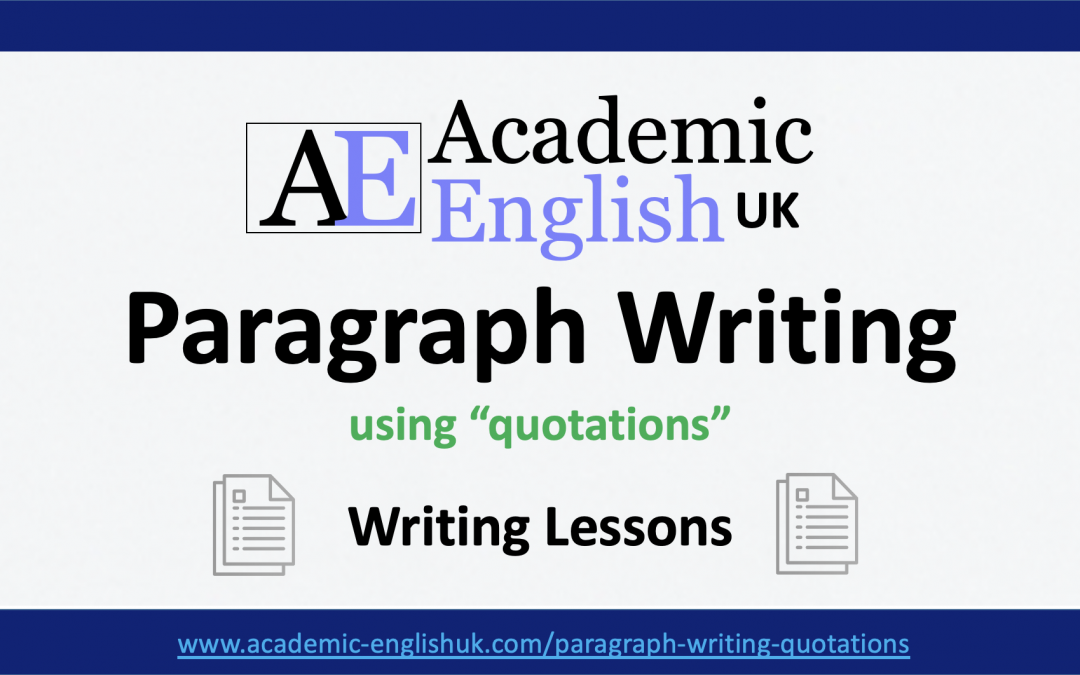
by AEUK | Jun 12, 2024 | Referencing, Writing
Paragraph Writing: “Quotations” What is paragraph writing with quotations? Paragraph writing with quotations are writing lessons to practice a range of key writing skills: Identifying a position or opinion on a given topic. Reading ten quotations and...
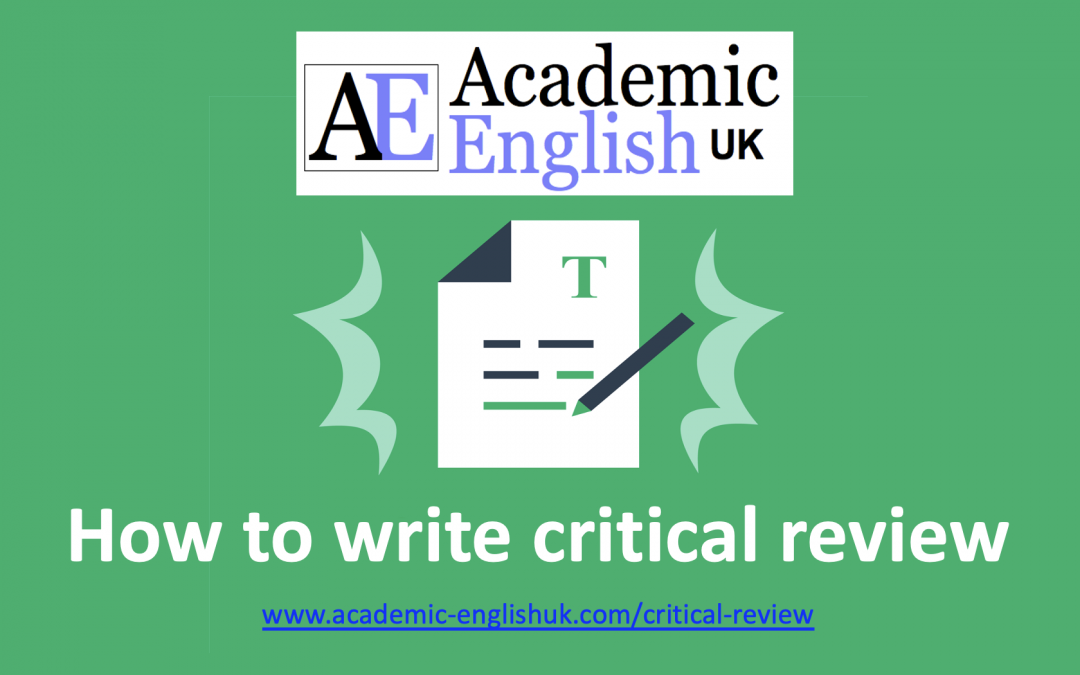
by AEUK | May 13, 2024 | Critical thinking, Writing
Critical Review A critical review (sometimes called a critical evaluation, a critical analysis, a critical appraisal, or a critical commentary) is a detailed commentary on and evaluation of a text. What is a critical review? In very simply terms, a critical review or...
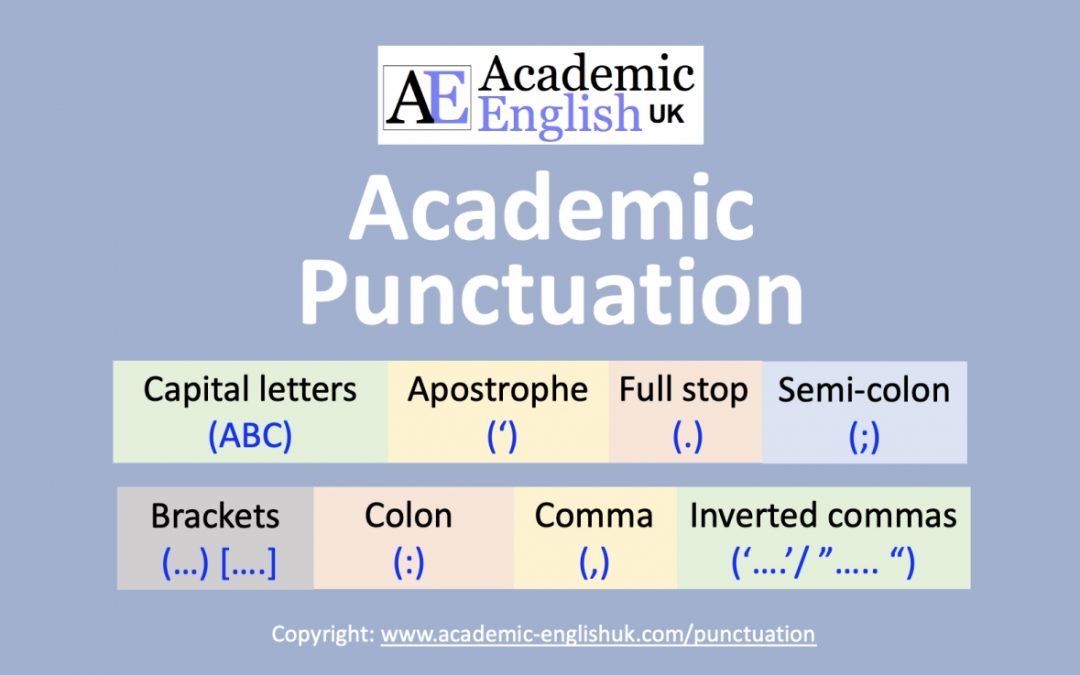
by AEUK | Dec 10, 2023 | Referencing, Study Skills, Writing
Academic Punctuation Punctuation /pʌŋk.tʃuˈeɪ.ʃən/ is used to create sense, clarity and stress in sentences. You use punctuation marks to structure and organise your writing. Punctuation Dictionary Definitions The practice or system of using certain conventional...
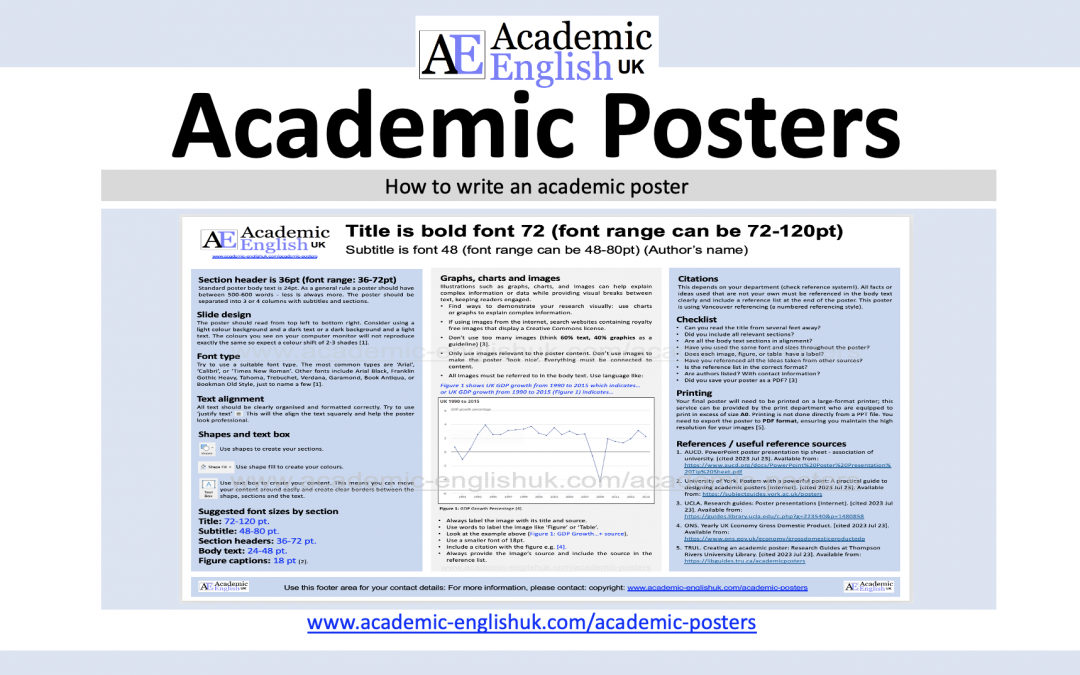
by AEUK | Aug 6, 2023 | Academic Posters, Writing
Academic Posters Academic posters are a visual form of communicating academic research, projects or literature reviews that often combine elements of text and diagrams to convey ideas in a clear and concise way. Although traditionally used in hard science disciplines,...
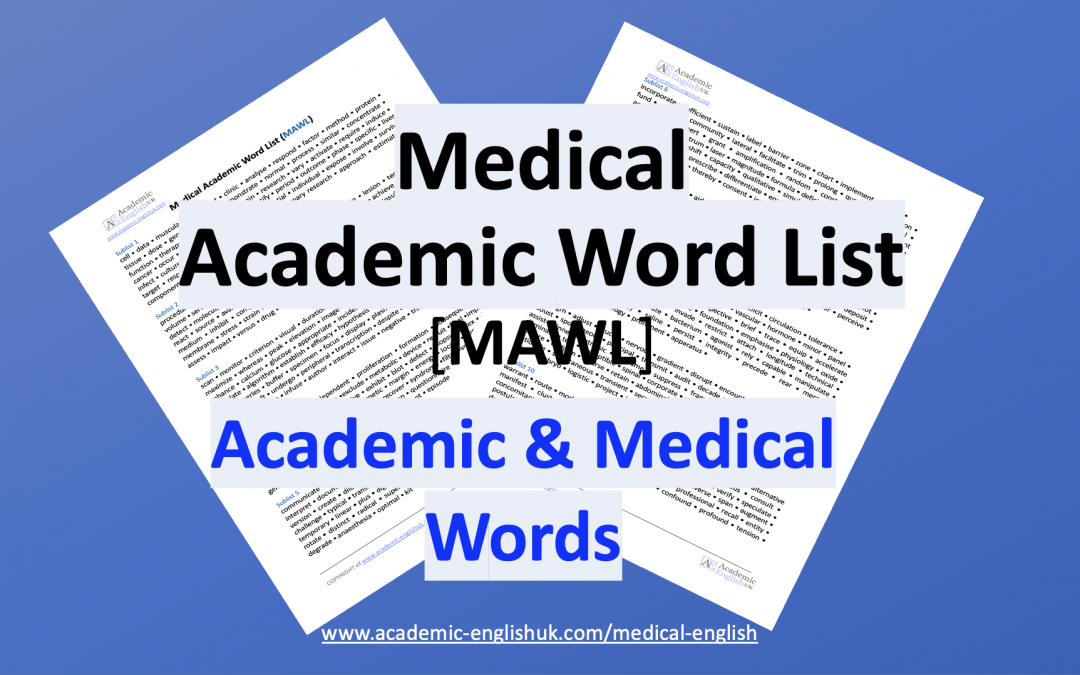
by AEUK | Jul 16, 2023 | Lessons, Listening, Medical English, Reading, Vocabulary, Writing
Medical English Vocabulary Medical English Worksheets / Lessons Click on any link to be taken to the download MAWL MAWL MAWL Video MAWL Synonyms MAWL Gap Fill LESSONS Heart Disease Dementia Air Pollution Noise Pollution Listenings TED Talks Medical 1 x5 TED Talks...
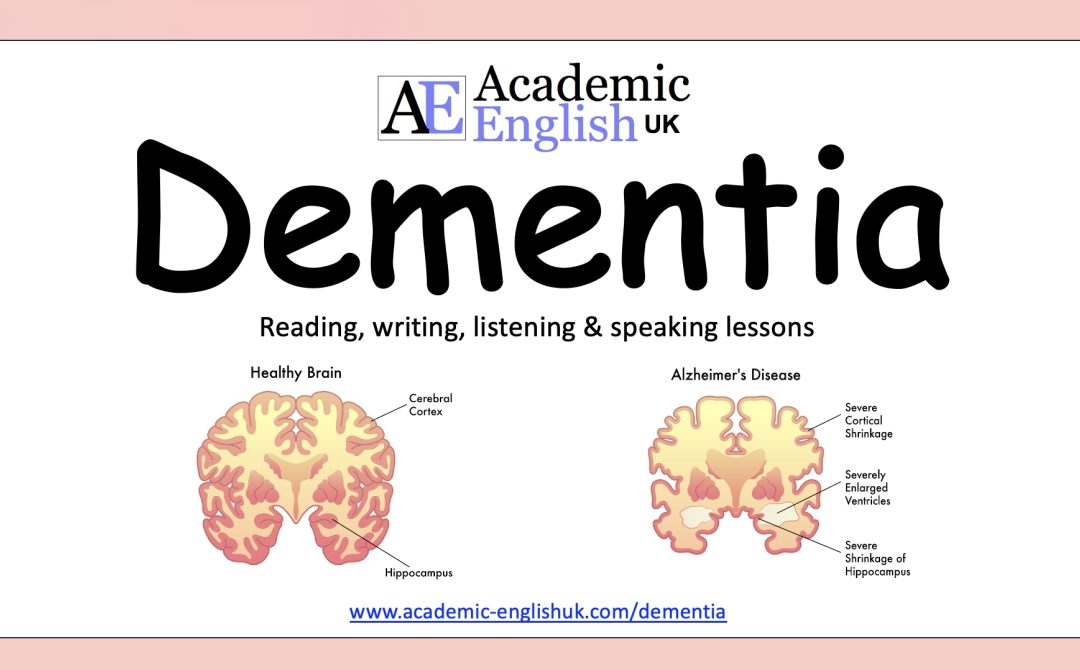
by AEUK | Jun 27, 2023 | Lessons, Listening, Reading, Speaking, Writing
Dementia What is dementia? Dementia is a neurodegenerative disorder that progresses over time and primarily impacts cognitive functions such as memory, thinking, and behaviour. It is caused by many different diseases which damage the nerve cells and generally affects...
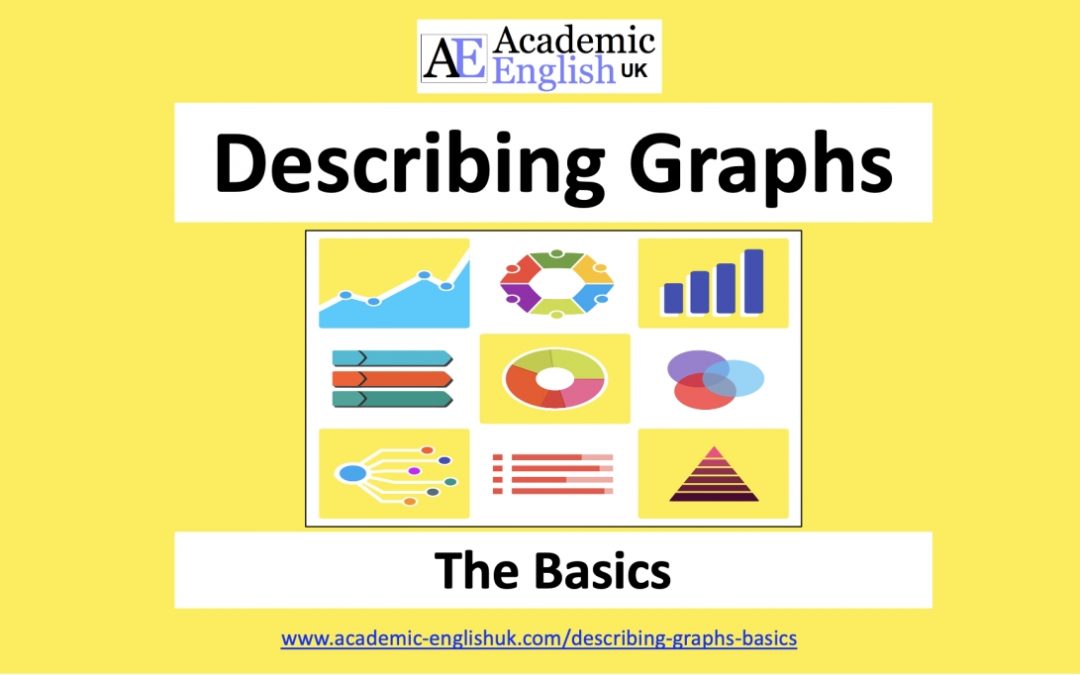
by AEUK | May 1, 2023 | Graphs, Speaking, Writing
Describing Graphs (The Basics) This lesson shows how to label and describe a graph using a variety of language (increase, grow, fall, plummet, fluctuate, etc..). It focuses on adjective and verb collocations for natural precise descriptions and also includes a range...

by AEUK | Feb 21, 2023 | Lessons, Listening, Reading, Speaking, Writing
Front Groups What is a front group? A front group is a seemingly independent and not-for-profit organisation, predominantly operating in and around the areas of public health and the environment. They are typically set up by hugely lucrative conglomerates, and usually...
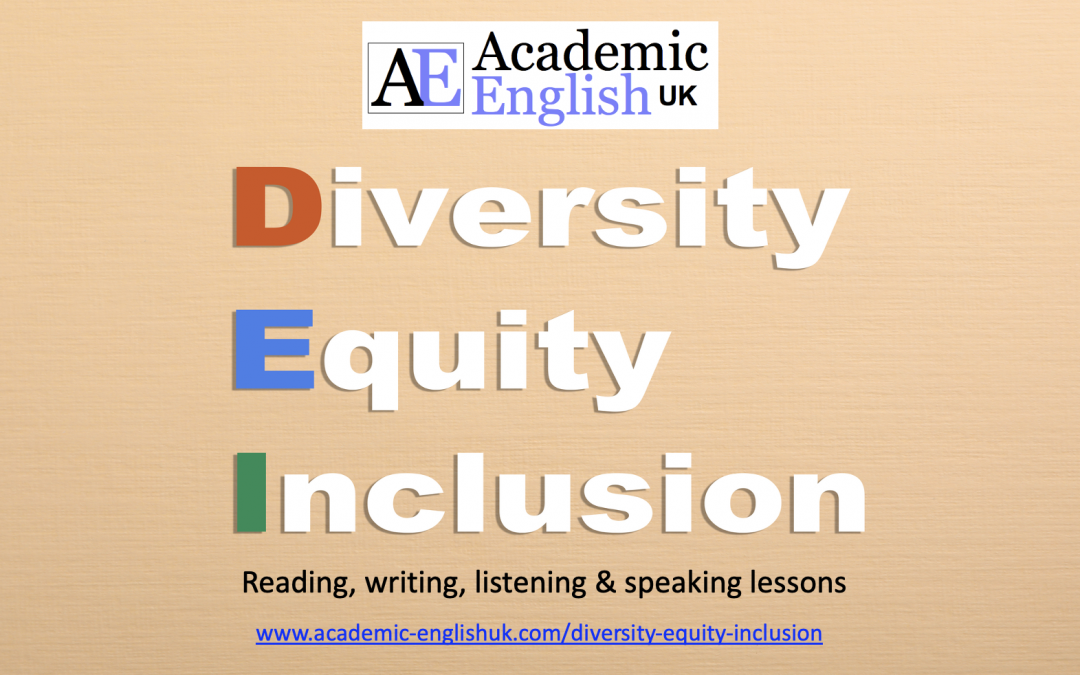
by AEUK | Jan 24, 2023 | Listening, Reading, Speaking, Writing
Diversity, Equity and Inclusion (DEI) What is diversity, inclusion and equity? Diversity, equity and inclusion, often shortened to DEI, is a collective term for the approaches, initiatives, and protocol set out in a place of work to promote equal representation and...
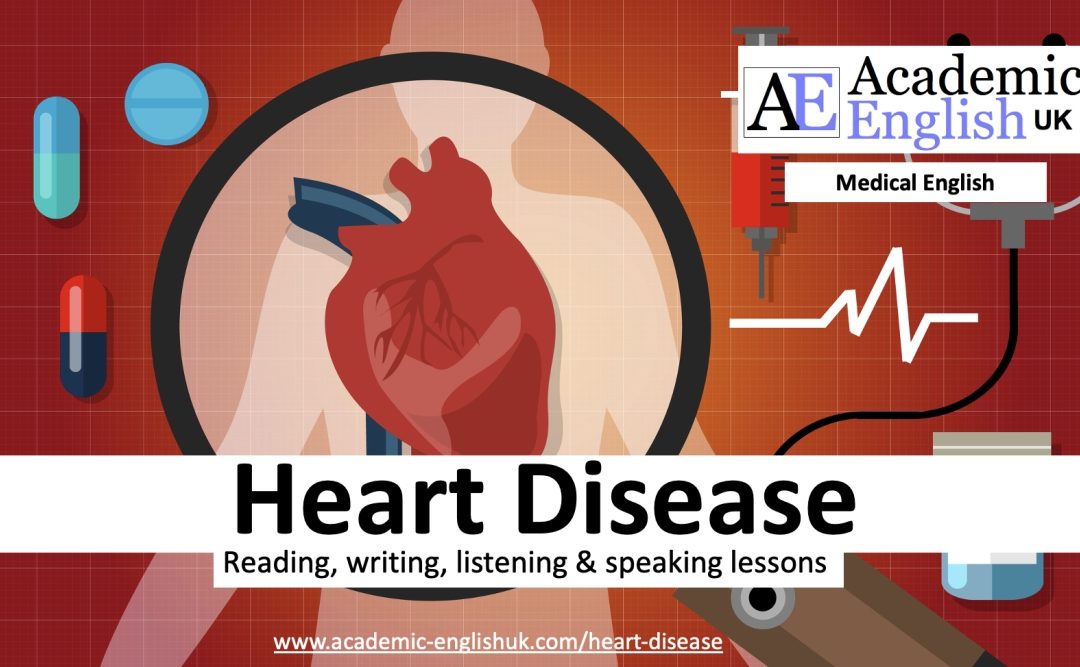
by AEUK | Jan 23, 2023 | Listening, Reading, Speaking, Writing
Heart Disease What is heart disease? Cardiovascular disease (CVD), a term used for any disease which affects the heart or blood vessels, is responsible for almost a third of all deaths worldwide (Public Health England, 2019). Of this group, coronary heart disease...
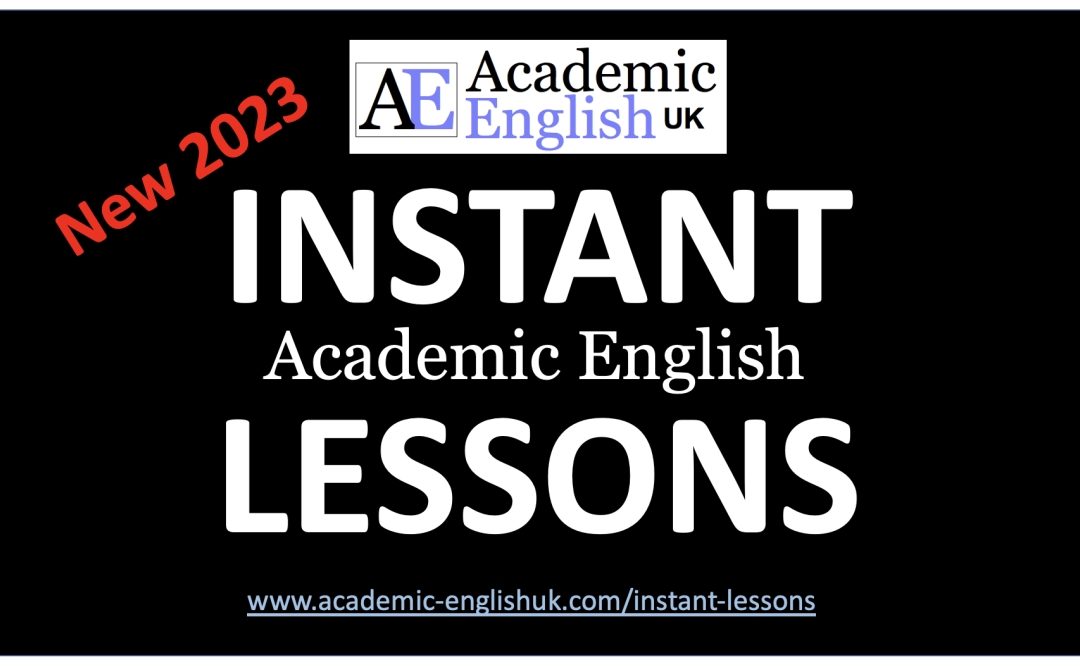
by AEUK | Jan 9, 2023 | Lessons, Listening, Reading, Speaking, Writing
Instant Academic English Lessons 2 What is an ‘instant lesson’? Instant lessons are for the busy EAP teacher to pick up and go. They are designed around a specific topic and include all key skills. Time: 1-2 hours of content (activities can be extended or...
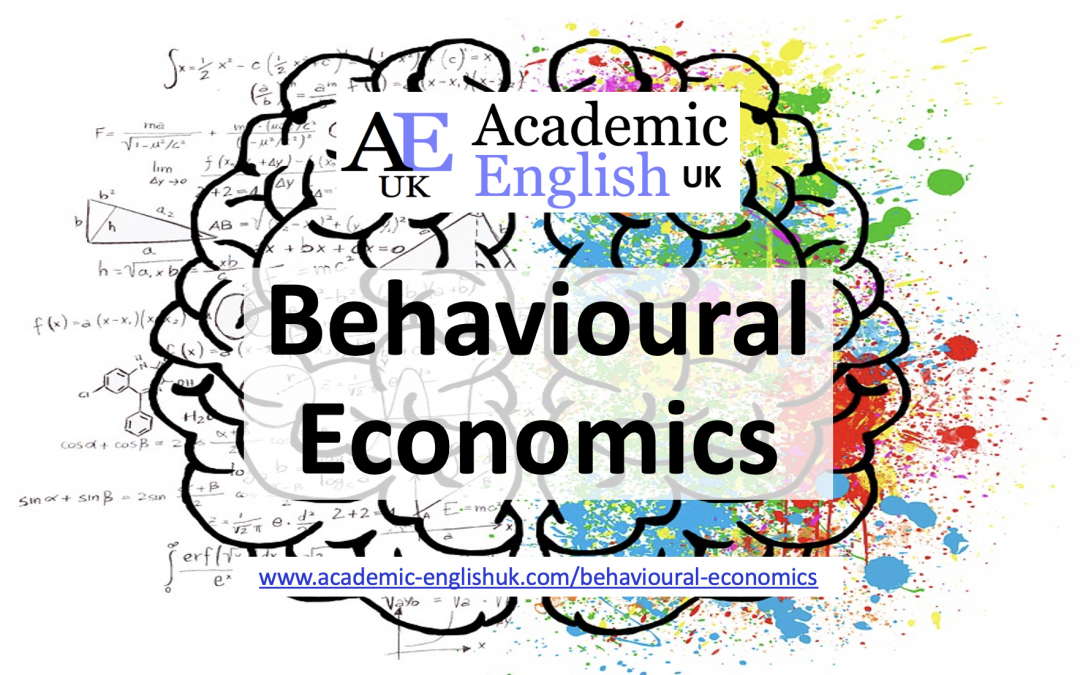
by AEUK | Sep 19, 2022 | EAP Teacher, Lessons, Listening, Reading, Writing
Behavioural Economics What is behavioural economics? Behavioural economics, a term coined by Richard Thaler in 2008, refers to the role that psychological, emotional, cultural and social factors play in decision-making in an economic context. As detailed by Social...

by AEUK | Jul 30, 2022 | Listening, Reading, Speaking, Writing
Marketing What is marketing theory? Some of the most common marketing models include the Segmentation, Targeting and Positioning process, which focuses on generating value for an organisation through delivering relevant products, services and communications to the...
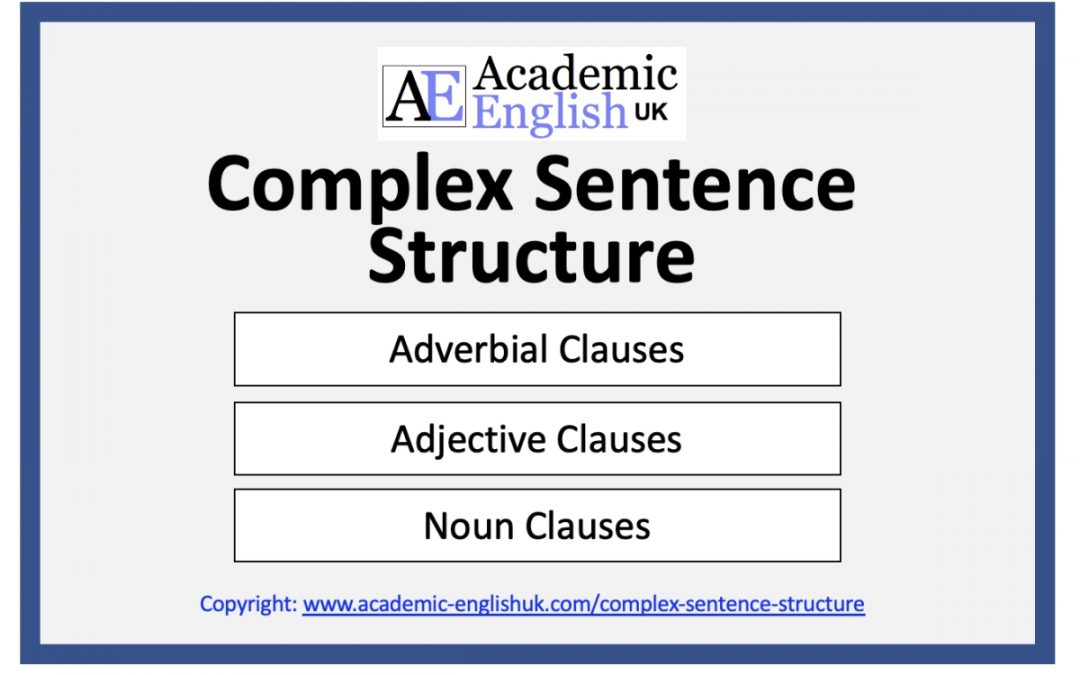
by AEUK | Jun 6, 2022 | Grammar, Writing
Complex Sentence Structure What is a complex sentence structure? A Complex sentence is an independent clause connected to one or more dependent clauses using a subordinating conjunction (despite, although) or a relative pronoun (who, which). Three types of complex...
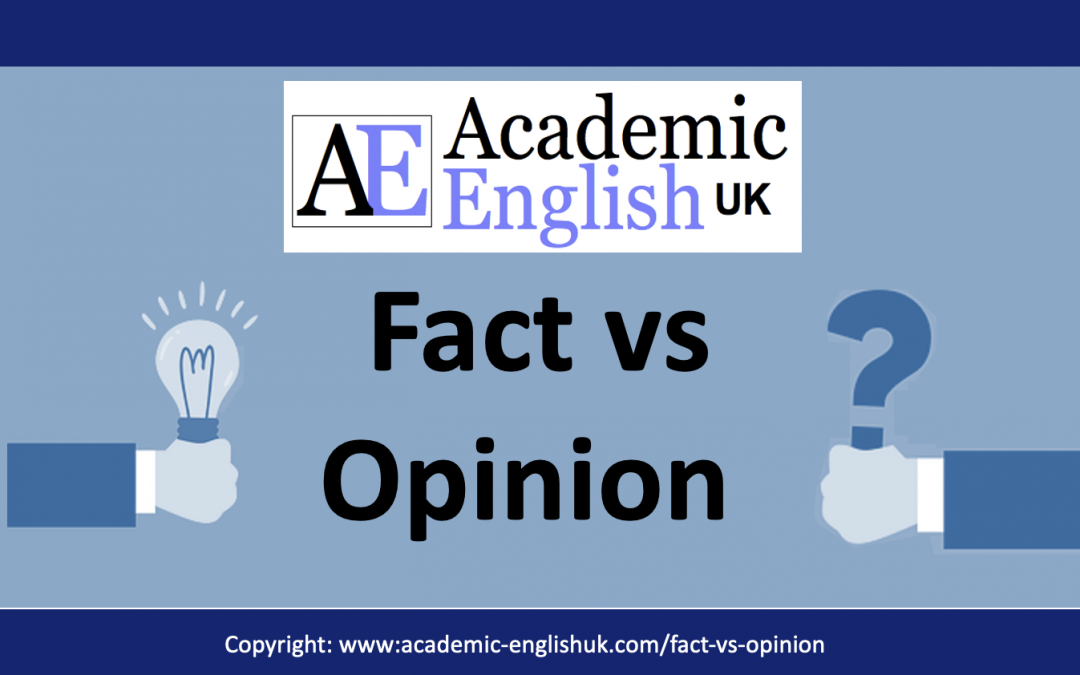
by AEUK | May 22, 2022 | Reading, Writing
Fact versus Opinion What is a fact? A fact is an objective statement that is supported with evidence and can be proven to be true or false. It is a statement that everyone agrees is true. There is no argument. Facts may contain words like discover, demonstrate,...
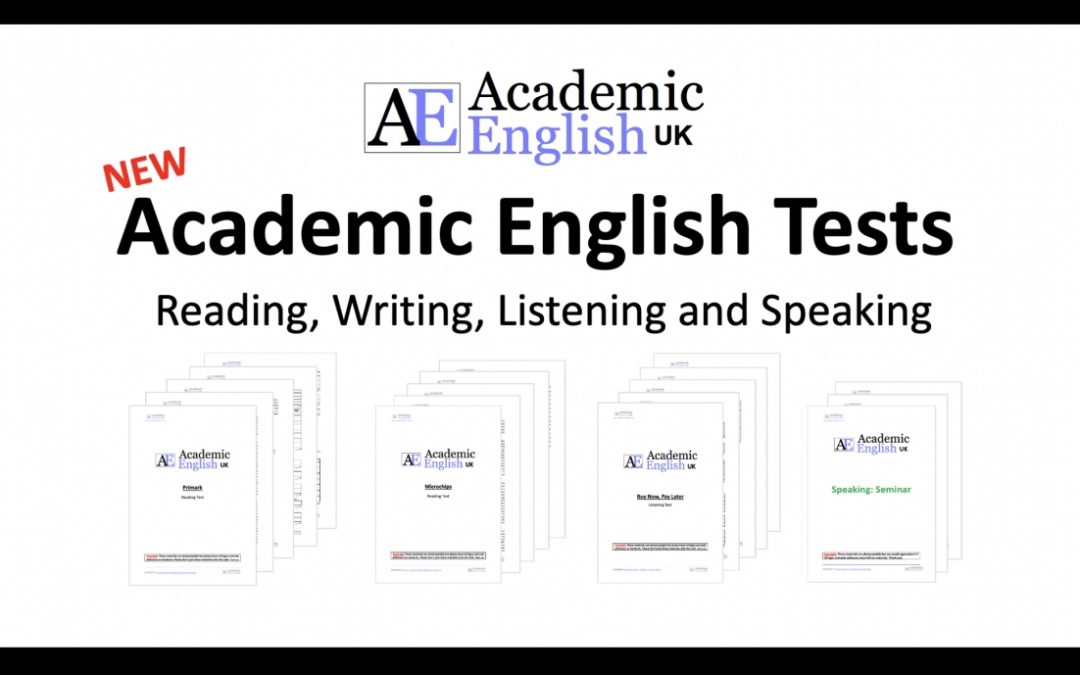
by AEUK | Apr 21, 2022 | EAP Teacher, Listening, Reading, Speaking, Writing
Academic English Tests What are academic English Tests? OverviewMore information Each test includes an academic reading, summary writing, lecture listening and seminar speaking. All texts are written and created by us and we dedicate a considerable amount of time in...
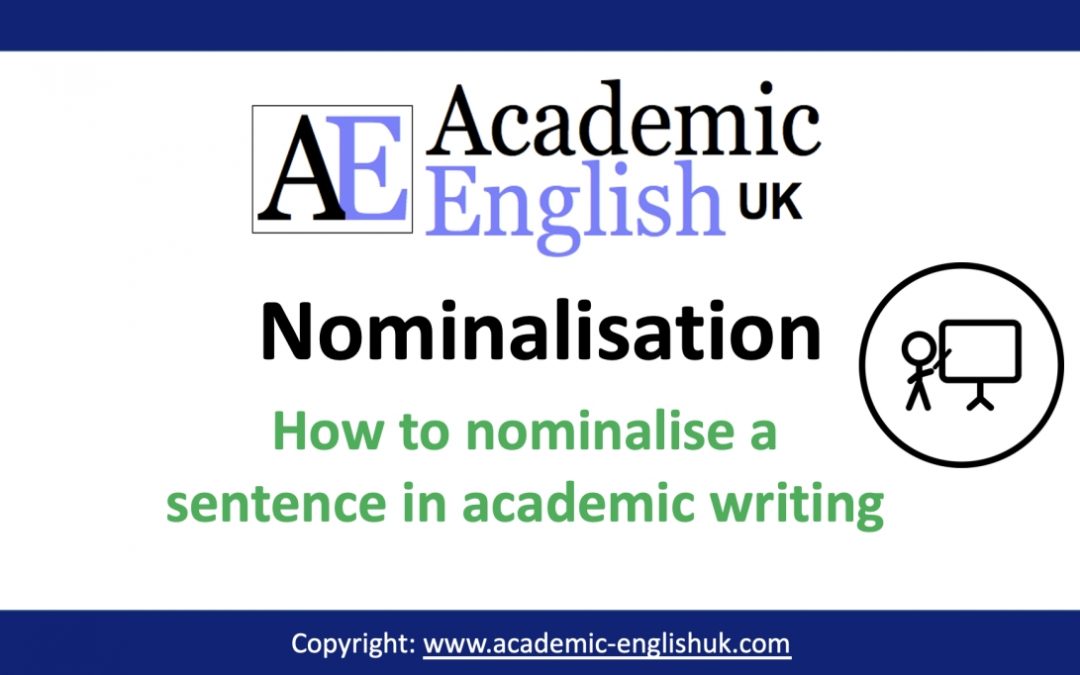
by Admin | Mar 7, 2022 | Grammar, Vocabulary, Writing
Nominalisation – how to nominalise in academic writing. What is nominalisation? Nominalisation is the process of changing verbs or adjectives to nouns. Why use nominalisation? The nominalisation grammatical process develops complex grammar noun-phrase...
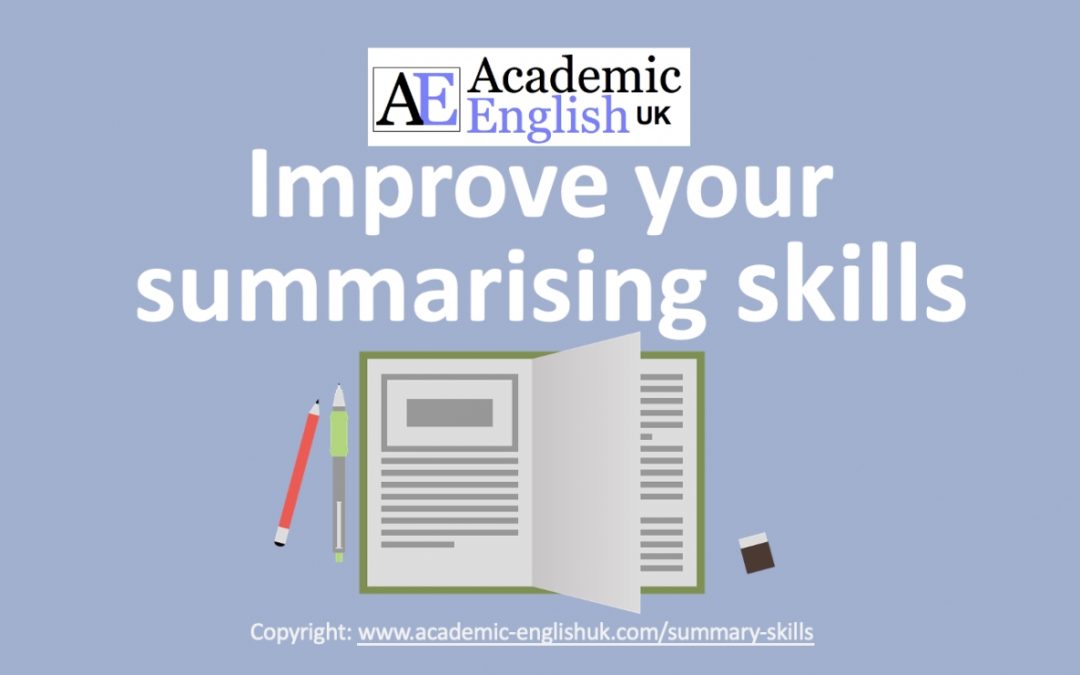
by AEUK | Jan 31, 2022 | EAP Teacher, Writing
Academic Summary Skills What is a summary? A summary is a synthesis of the main points of an article written in your own words. It is a combination of selecting the relevant information and condensing it so that it is no more than a third of the length of the...

by AEUK | Jan 29, 2022 | Lessons, Referencing, Writing
Improve your paraphrasing skills Paraphrasing is using your own words to express someone else’s message or ideas. In a paraphrase, the ideas and meaning of the original source must be maintained; the main ideas need to be expressed, but the wording has to be...
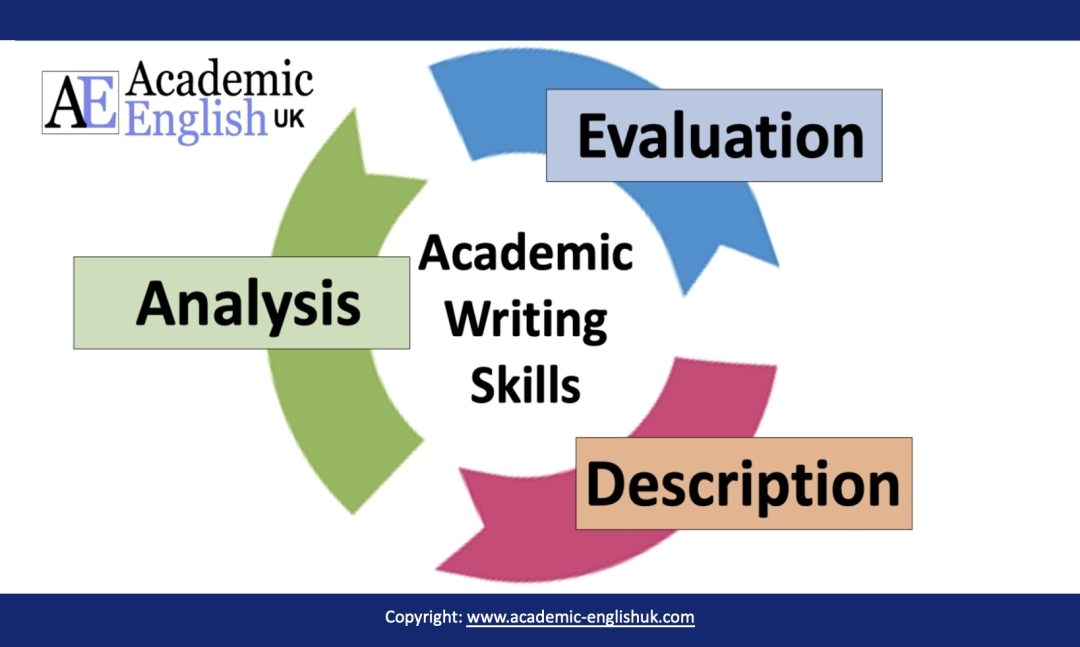
by Admin | Oct 4, 2021 | Critical thinking, Writing
Description, analysis & evaluation A basic definition of all three terms: Description: To give a clear and detailed picture of something. Analysis: To make a methodical and detailed examination. Evaluation: To make judgements about the value of...
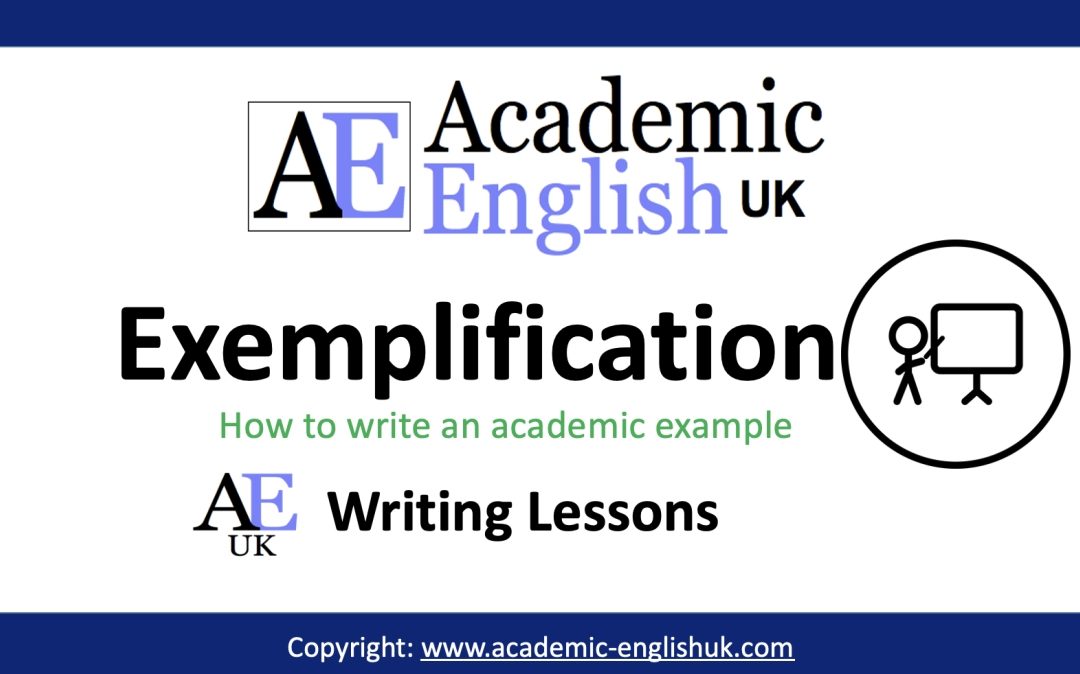
by AEUK | Aug 1, 2021 | EAP Teacher, Writing
Academic Exemplification What is exemplification? Exemplification means to provide readers with examples that illustrate a larger point. Exemplification writing uses specific, vivid examples for the purpose of adding more information to explain, persuade, define or...
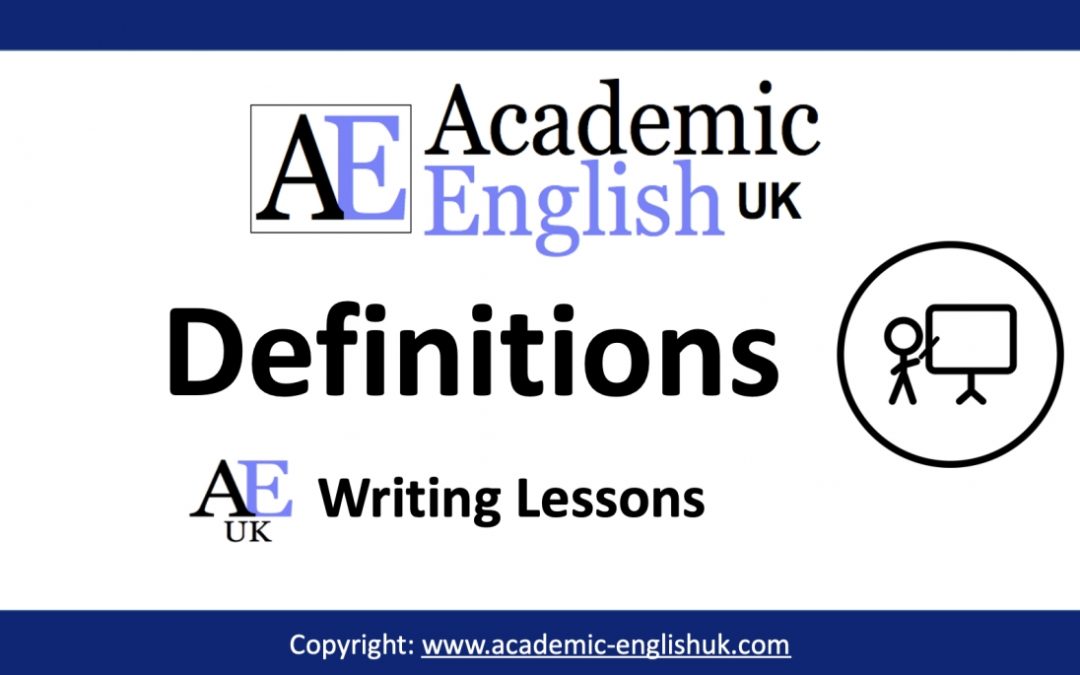
by AEUK | Jul 3, 2021 | EAP Teacher, Grammar, Writing
Academic Definitions What are academic definitions? Academic definitions are statements explaining the meaning of a word or phrase. Definitions show that you understand key terms and ensure that there is no misunderstanding with your audience. Academic definitions...
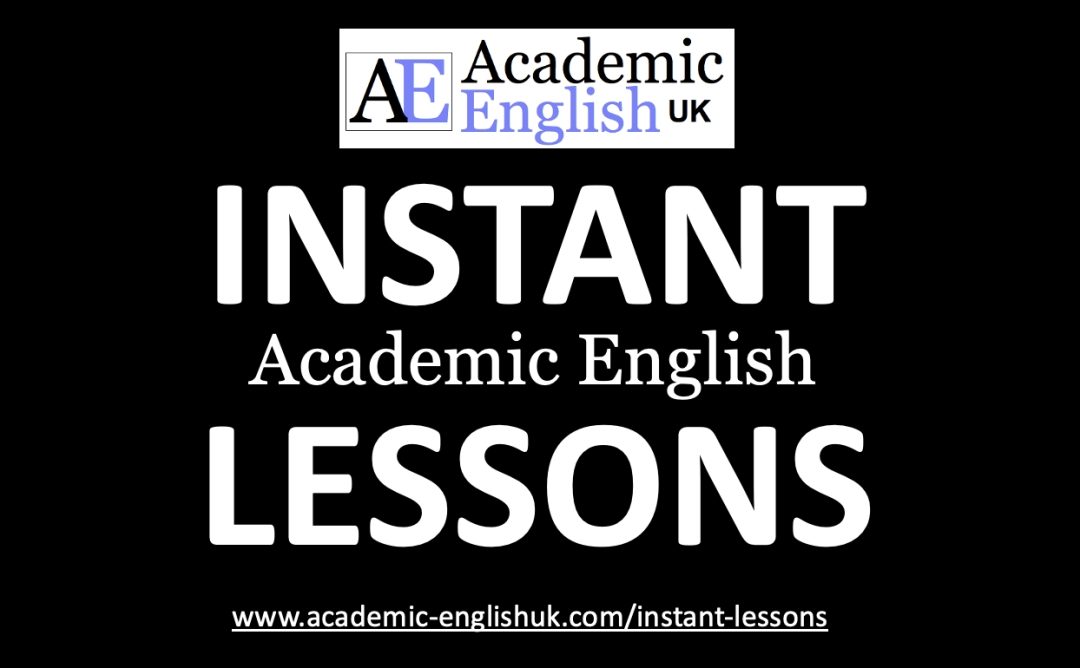
by AEUK | Jun 6, 2021 | Lessons, Listening, Reading, Speaking, Writing
Instant Academic English Lessons What is an ‘instant lesson’? Instant lessons are for the busy EAP teacher to pick up and go. They are designed around a specific topic and include all key skills. Time: 1-2 hours of content (activities can be extended or...
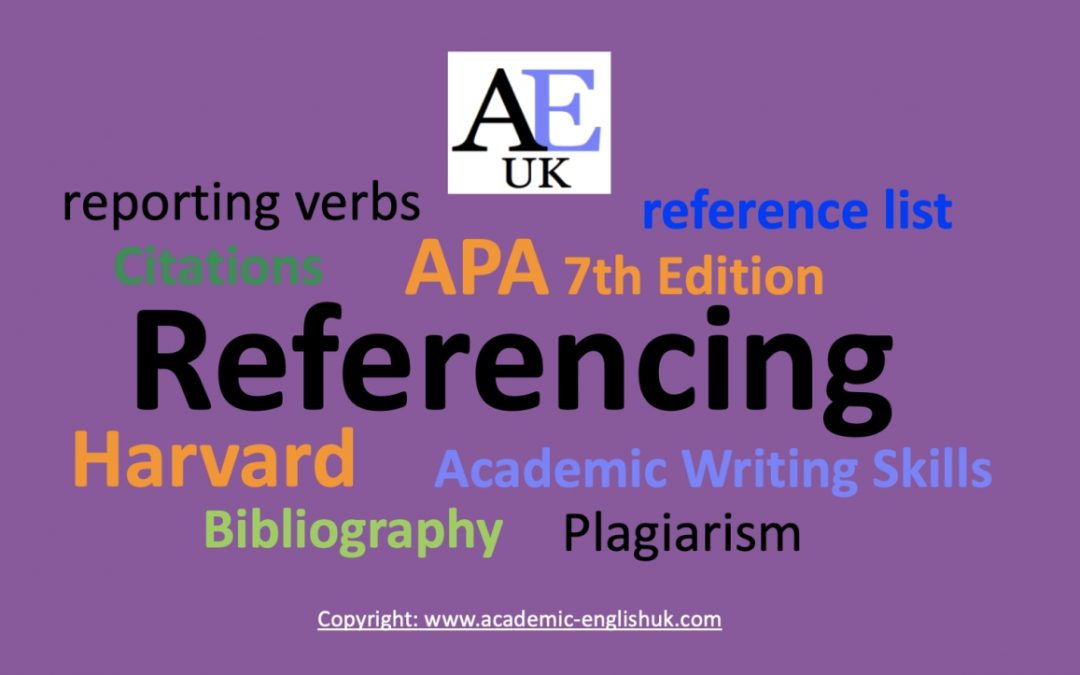
by AEUK | Apr 25, 2021 | Academia, EAP Teacher, Referencing, Writing
WRITING / Reference Verbs / Reference List / Referencing In-Text Referencing Terms & Conditions of Use When you use information from a text, you have to acknowledge it / state who said it. Why? It’s not your idea, so you must give credit to the writer of the...
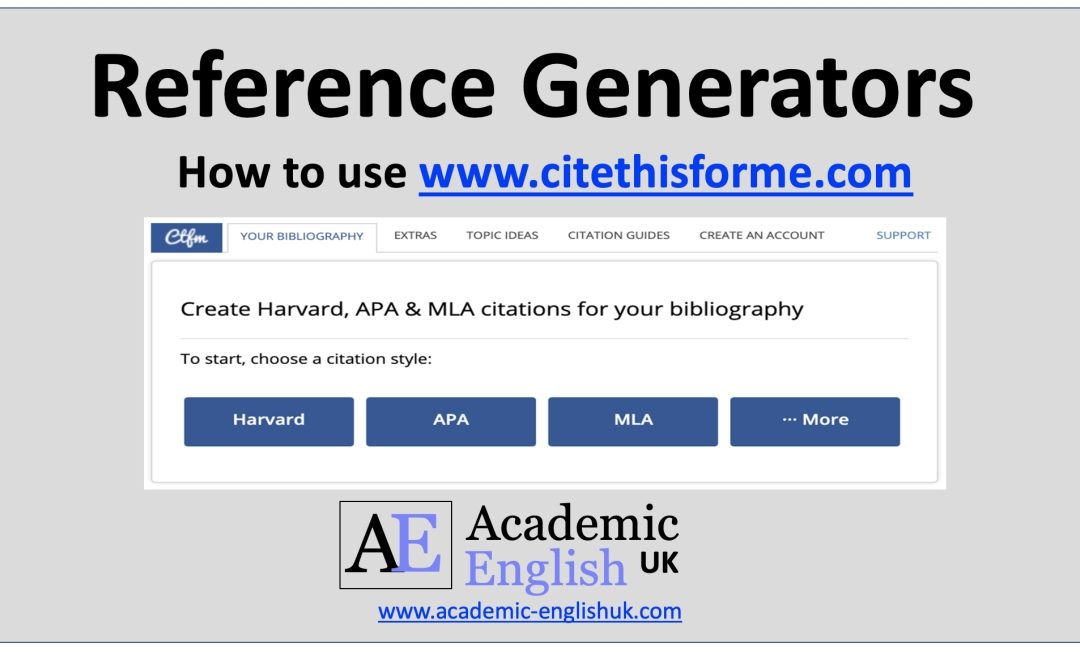
by AEUK | Apr 25, 2021 | Referencing, Writing
How to use www.citethisforme.com What is a ‘reference generator’? A reference generator or citation tool is a digital application that creates reference lists and in-text citations in all referencing systems. Reference Generator Video If you can’t access...
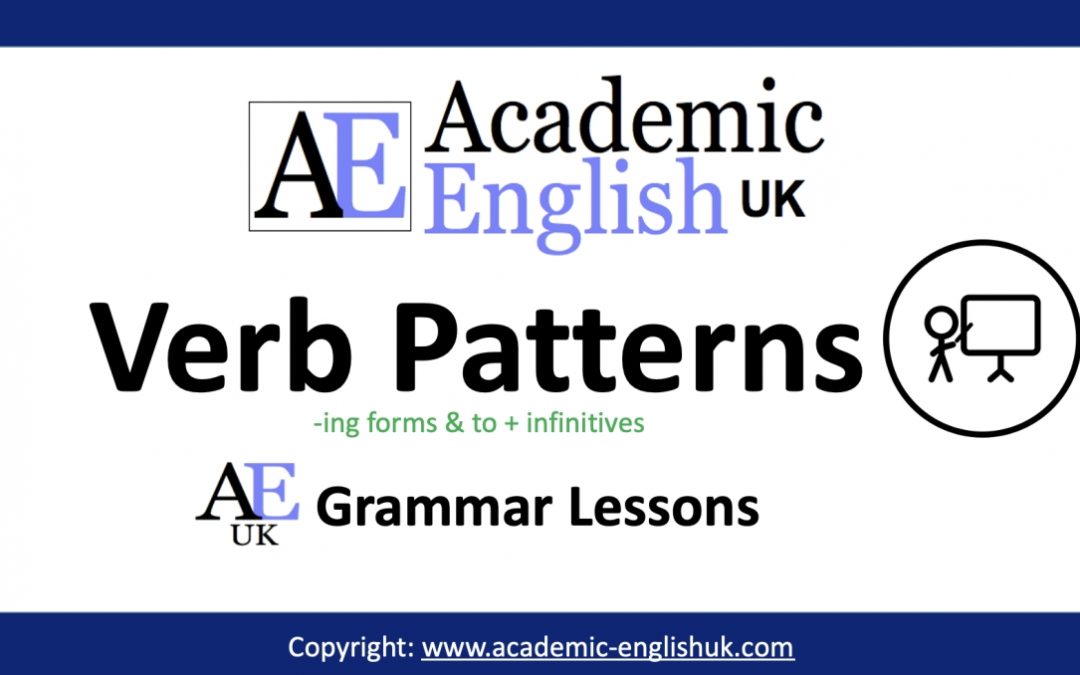
by AEUK | Mar 19, 2021 | Academia, EAP Teacher, Grammar, Lessons, Reading, Writing
GRAMMAR / Verb Patterns Academic Verb Patterns Terms & Conditions of Use What are verb patterns? A verb pattern is when one verb follows another in a single clause. The former verb dictates how the latter verb will be used. There are five main verb patterns in...
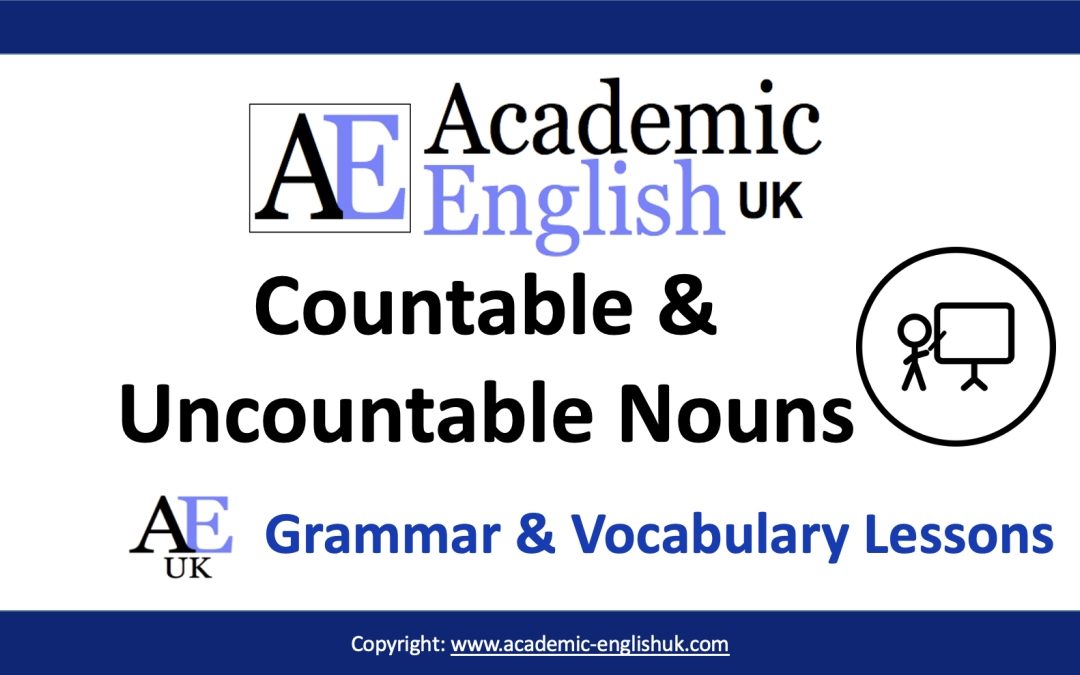
by AEUK | Mar 7, 2021 | EAP Teacher, Grammar, Lessons, Reading, Vocabulary, Writing
GRAMMAR / Un/countable nouns Academic Countable & uncountable nouns Terms & Conditions of Use What are countable and uncountable nouns? Countable (or count) nouns refer to something that can be counted, such as equations or people. They have a singular and...
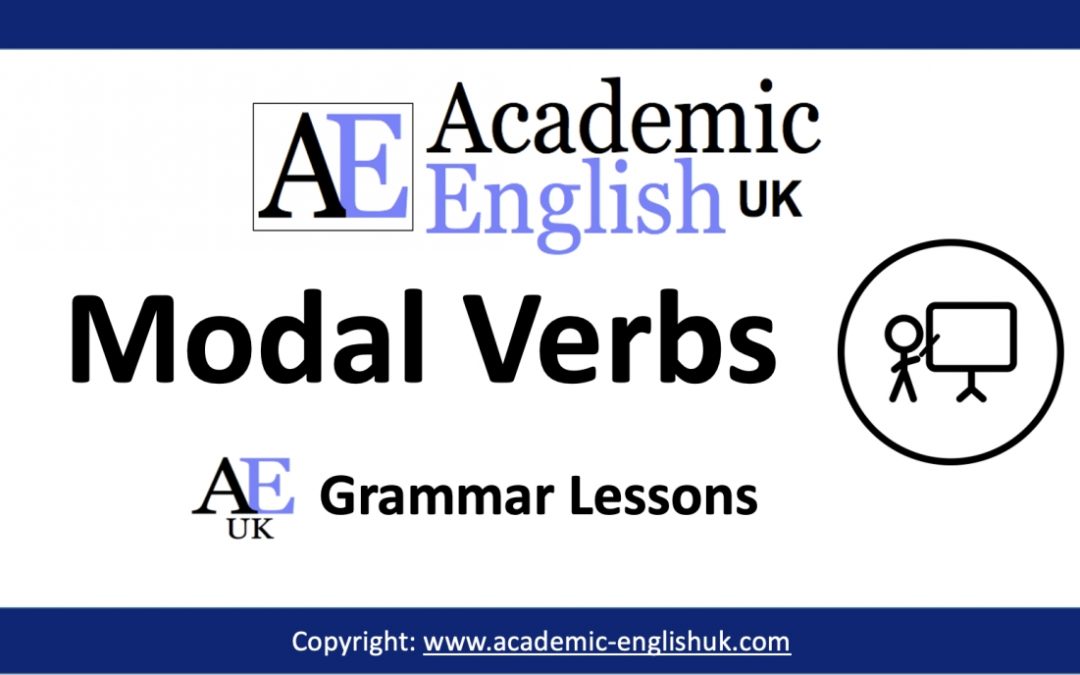
by AEUK | Feb 15, 2021 | Grammar, Writing
GRAMMAR / Modal Verbs Academic Modal Verbs Terms & Conditions of Use What are modal verbs? Modal verbs are used to express a certain attitude or perspective. They are classified as auxiliary verbs so they have no infinitive form, no gerund form, no past...
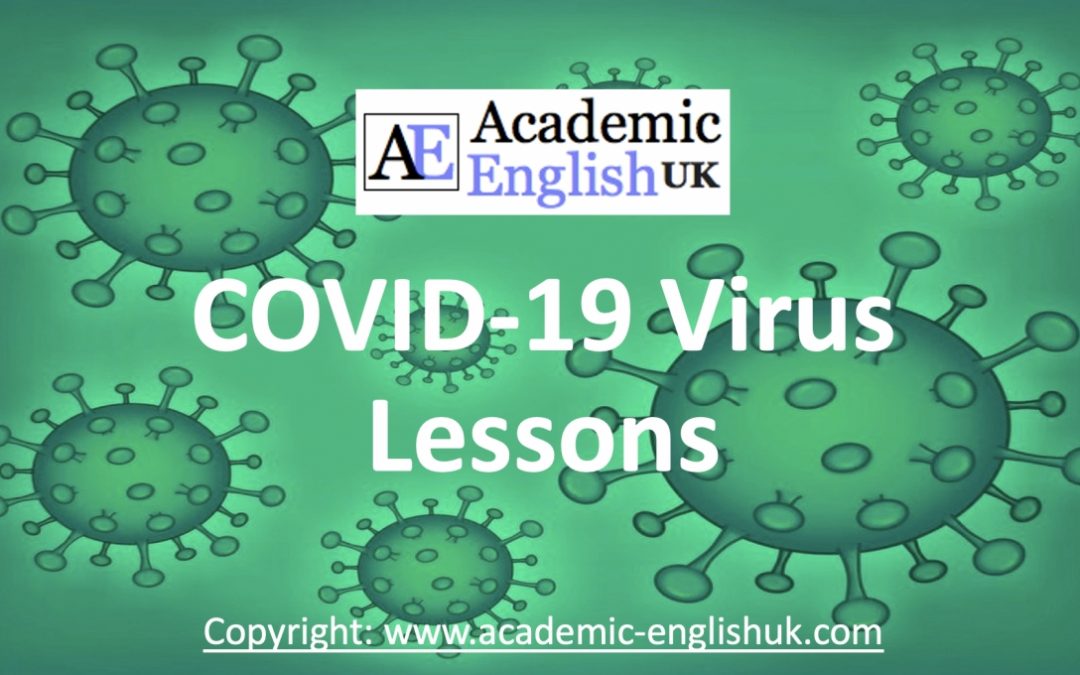
by AEUK | Feb 2, 2021 | Academia, Listening, Reading, Speaking, Writing
COVID-19 Pandemic Lessons Understanding COVID-19 Terms & Conditions of Use What is this COVID-19 lesson about? This ‘COVID-19’ lesson book includes 6-10 hours of content: Exploring COVID-19 through Internet research. Scientific research: what is the COVID-19...

by AEUK | Dec 16, 2020 | Grammar, Lessons, Vocabulary, Writing
SKILLS / Writing / Vocabulary / Grammar Grammar Workshop Terms & Conditions of Use This webpage is a selection of grammar videos and free downloadable PDF exercises. It is mainly focused on general English grammar but is still important in building good grammar...
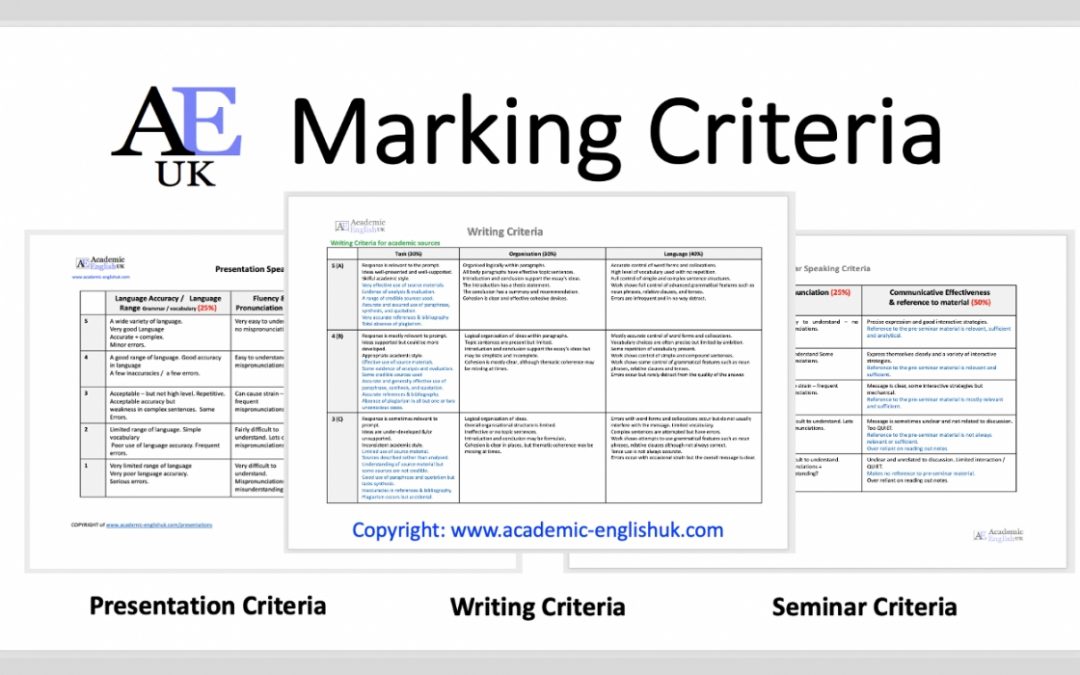
by AEUK | Nov 15, 2020 | Academia, Speaking, Writing
Academic Marking Criteria Marking criteria Marking criteria are the standards of judgement for assignments. Marking criteria are often divided into sections with explicit definitions of the quality expected for different levels of judgement. Students It is important...
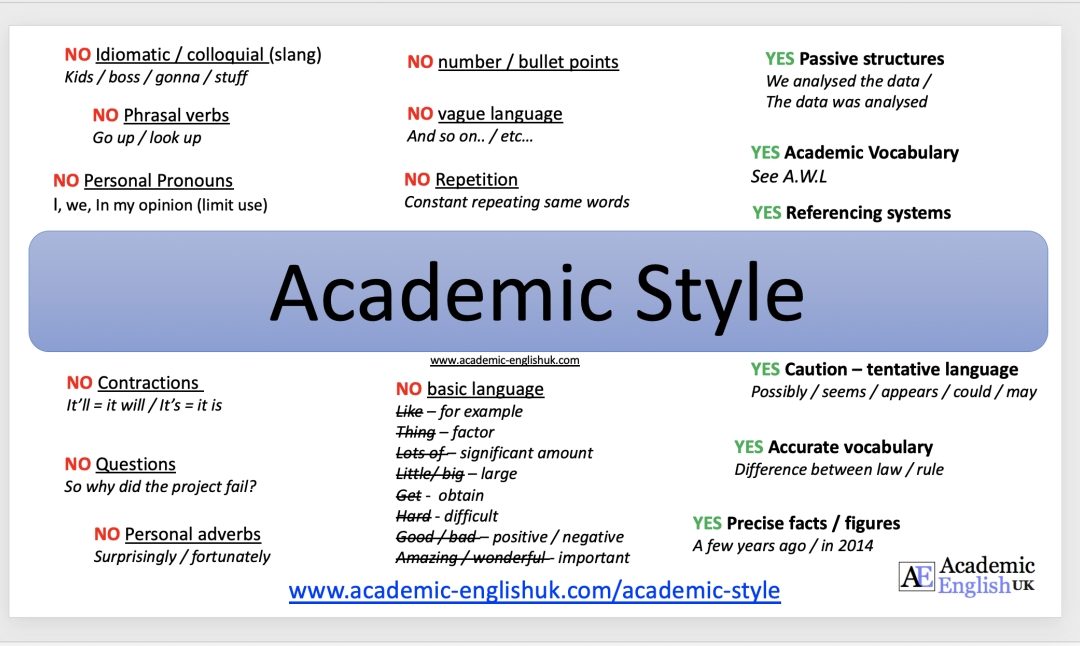
by AEUK | Sep 30, 2020 | Academia, Writing
WRITING / Academic style Academic Writing Style – key points Academic style is the conventions often associated with academic writing. Although there is much debate over what exactly academic style is, generally there is an agreement among most Academic English...
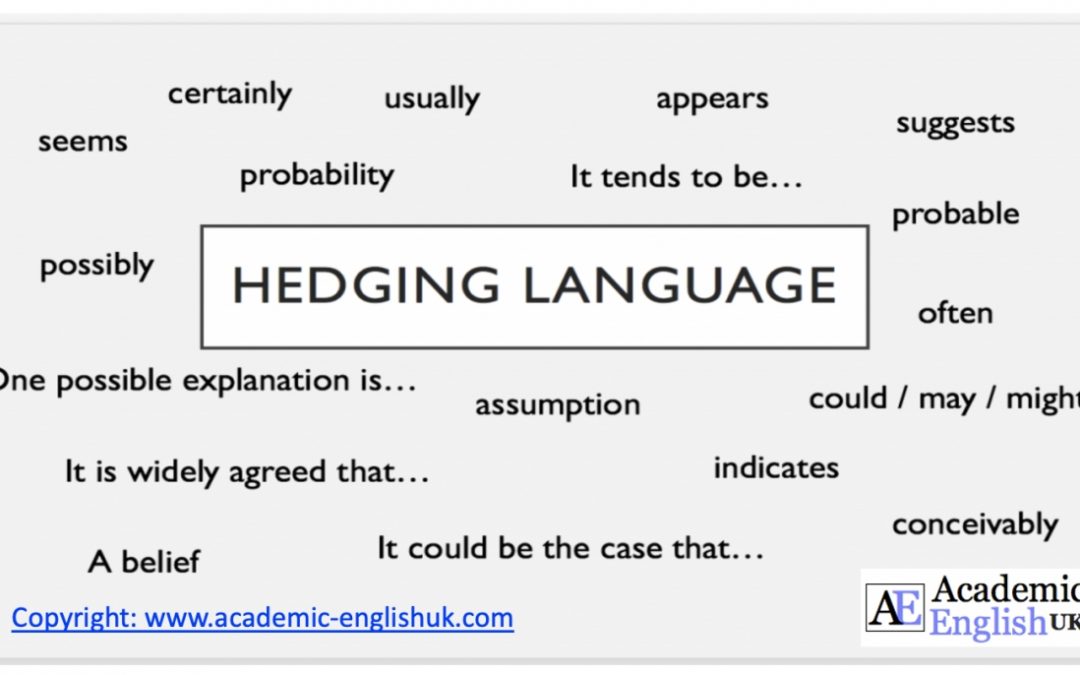
by AEUK | Jul 26, 2020 | Vocabulary, Writing
Hedging / Caution Phrases What is hedging language? An important feature of academic writing is the concept of cautious language, often called “hedging” or “vague language”. In other words, it is necessary to make decisions about your stance...
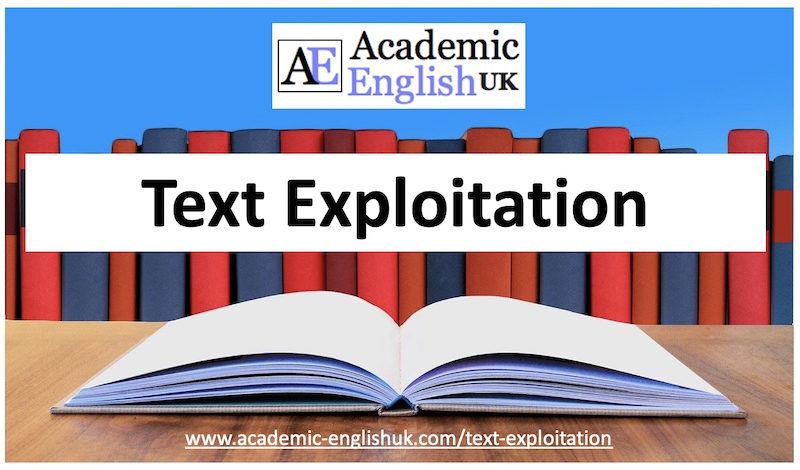
by AEUK | Jul 13, 2020 | Academia, Grammar, Reading, Referencing, Vocabulary, Writing
How students can exploit a text to support their learning What are reading strategies? Reading strategies are explicit approaches and techniques to improve comprehension of a written text. These reading strategies include skimming, scanning, surveying, highlighting,...

by AEUK | Jun 29, 2020 | Grammar, Writing
Sentence Structure What is sentence structure? Sentence structure is the way a sentence is constructed, grammatically. There are two types of clauses that create a sentence: independent and dependent. An independent (main) clause is a complete thought that can stand...
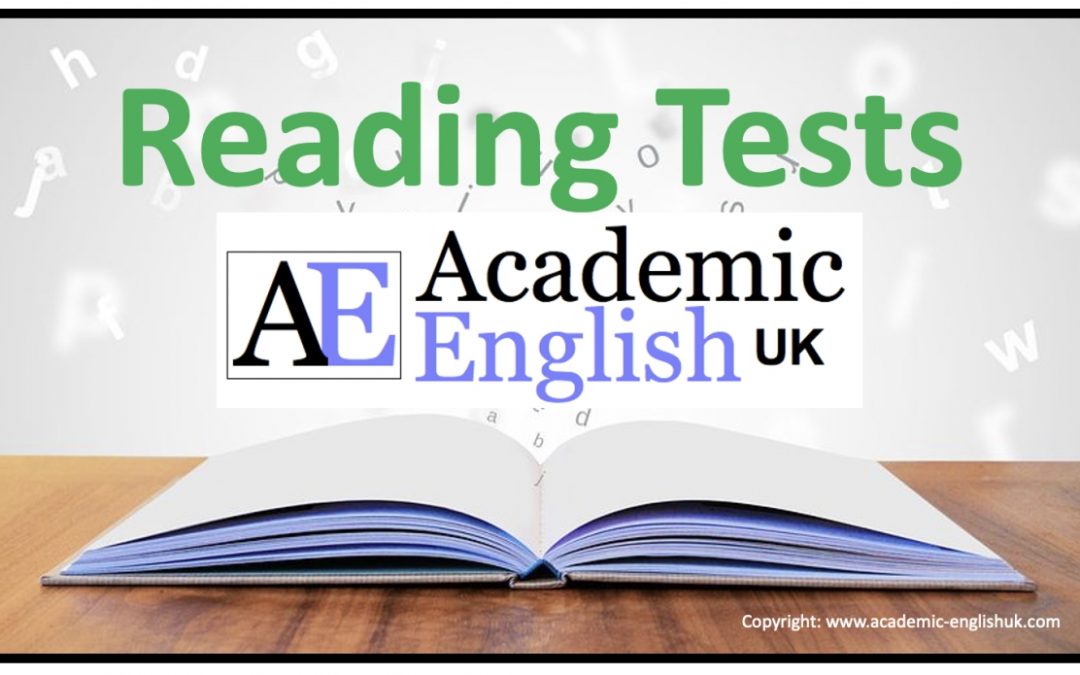
by AEUK | Jun 7, 2020 | Reading, Writing
RESOURCES: Reading / Writing / Listening / Speaking / Argument / SPSE / Reading Tests / Summary / Dictogloss / Grammar / Vocabulary / Critical Thinking / Instant Lessons / New 2022 / AEUK Academic Reading Tests What is an academic reading test? AEUK academic reading...
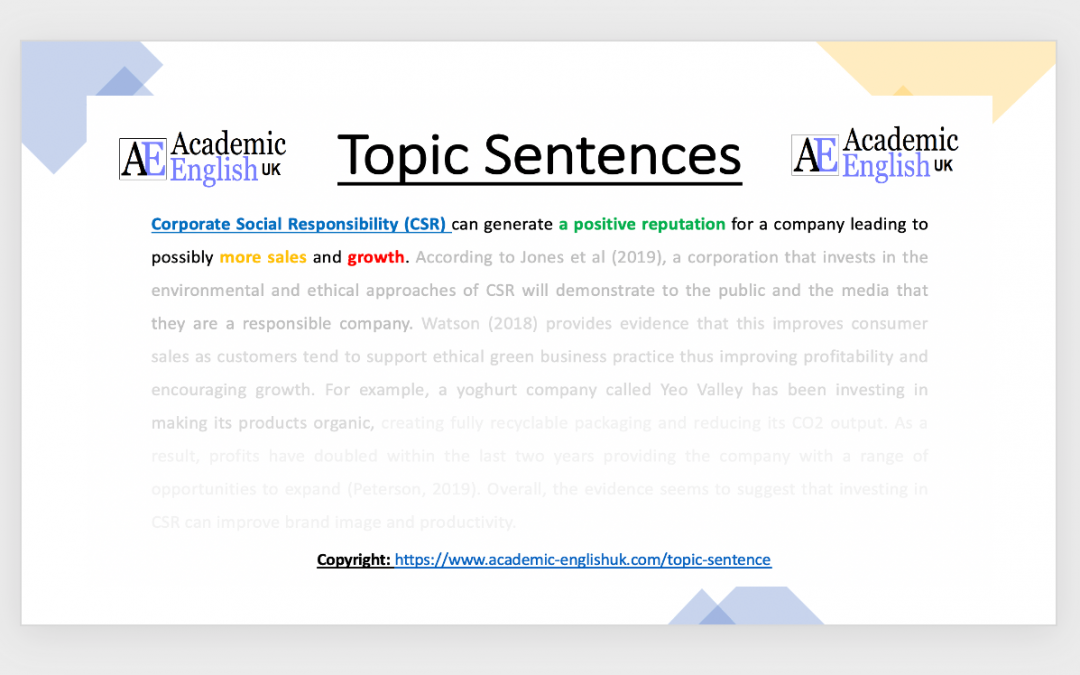
by AEUK | May 24, 2020 | Writing
The Topic Sentence What is a Topic Sentence or Paragraph Leader? A topic sentence is usually the first sentence which presents the main idea of your paragraph. It is often short, clear, simple and to the point and is usually followed by explanations, reasons and...
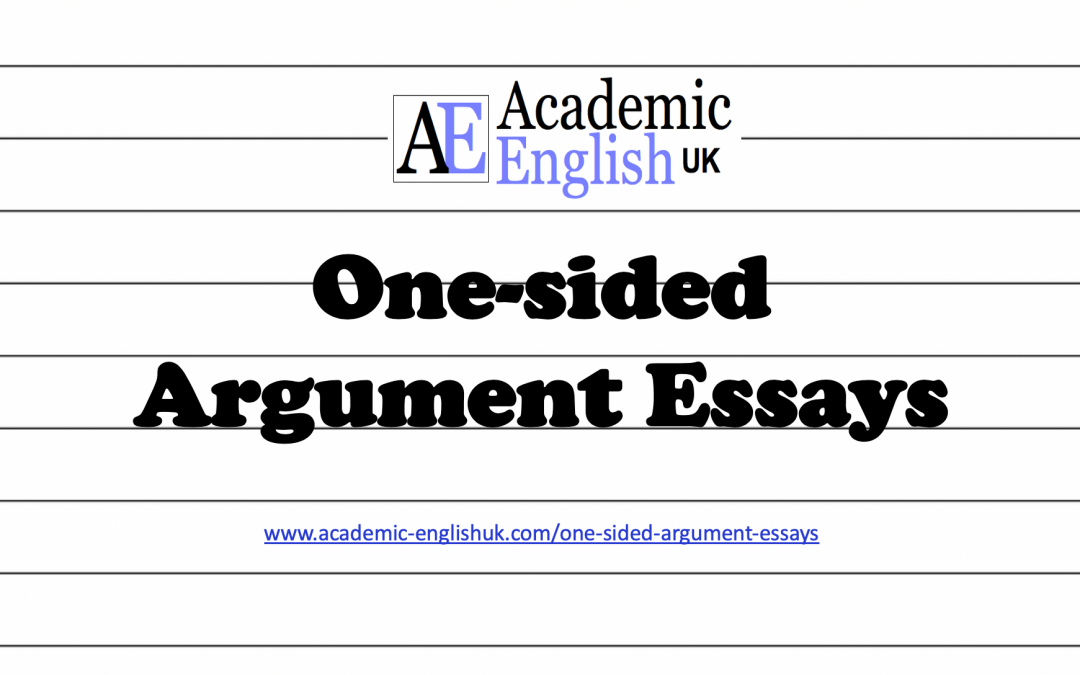
by AEUK | May 3, 2020 | EAP Teacher, Writing
AEUK One-Sided Argument (persuasive) Essays What is a one-sided argument essay? A one-sided argument (persuasive) essay is one in which the writer attempts to persuade the audience to agree with their thesis. It usually includes counter-arguments (the opposing views)...

by AEUK | Apr 28, 2020 | EAP Teacher, Lessons, Listening, Reading, Speaking, Writing
Academic Happiness Lesson Understanding Happiness What is this lesson about? This ‘happiness’ lesson book includes 6-10 hours of content: Exploring the topic and linking personal experience. Creating and writing a definition. Analysing different academic definitions...
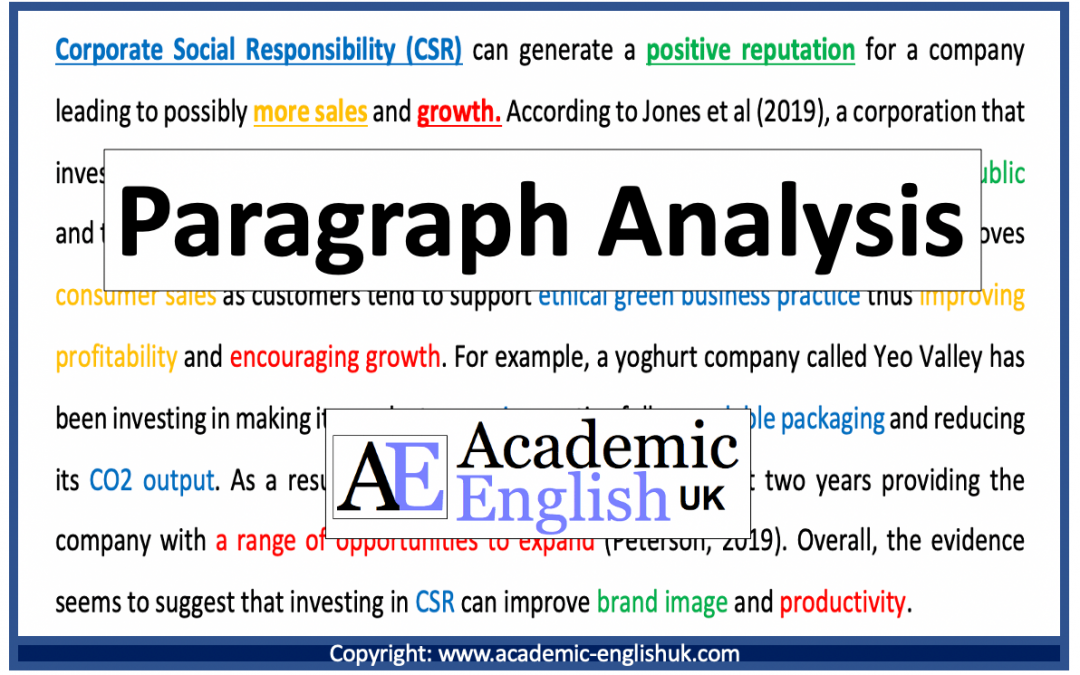
by AEUK | Apr 6, 2020 | EAP Teacher, Referencing, Writing
Academic Paragraphing What is paragraph analysis? Paragraph analysis is examining a paragraph to look at its features of construction. It’s a process of identifying how the topic sentence links to the paragraph through the development of the topic and...

by AEUK | Mar 17, 2019 | Listening, Reading, Writing
Ethical Consumerism Listening What is ethical consumerism? Borg and Regan (2008) describe ethical consumerism as consciously identifying the links between a product, its origins and the context in which it has been produced. They define the term as awareness of how a...
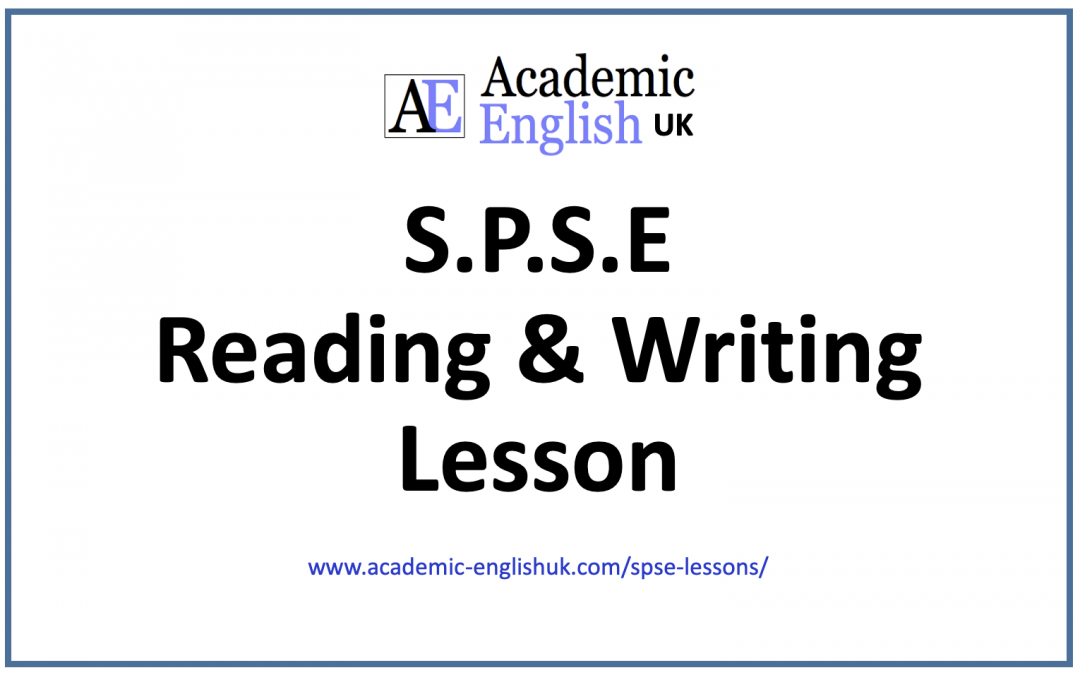
by AEUK | Apr 29, 2018 | Reading, Writing
SPSE Essays – Situation / Problem / Solution / Evaluation SPSE (situation, problem, solution, evaluation) essays are a common writing structure used at university. The aim of the S-P-S-E essay is to examine a problem and discuss two (or more) possible...




















































